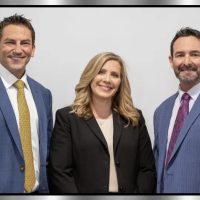Do You Have a Trademark? You Better Protect It

If you have a slogan, style, logo, or saying that is associated with your business, you may already know that to be fully protected, you need to trademark whatever it is that is unique to your business. And if you have already gone through the trademark process, congratulations—you’ve taken a big step to being legally protected.
But one mistake many businesses make is what happens after they get their trademark—they don’t actively protect it from potential infringers.
Why Ignore Infringement?
Why wouldn’t someone try to protect a trademark? There may be a lot of reasons, many of which, on the surface, sound like they make some sense.
You may simply feel it isn’t worth the time, money and energy to always sue to protect your trademark. This is especially true if the infringer isn’t a big threat to actually take any of your business from you. The infringer may not even have the assets to pay an infringement judgment, should you get one.
You may actually feel that infringement benefits you—although another business is using your style, color scheme, slogan or other unique name or design, that in some way does promote your business. It’s like free advertising for you.
The Risk of Ignoring Infringement
But think again. If your trademark becomes used too much, or becomes too common, that may sound like a good thing, but it’s not. You run the risk of your trademark becoming generic. That is, the trademark is no longer associated with your business in the minds of the general public. It is so commonly used, that it takes on a “life of its own.”
The US Patent and Trademark Office (USPTO) will look to see how the trademark is used or understood in the general public.
One recent example is the use of the word “bundt cake,” a word that most everybody believes is a generic term for a kind of cake, but which actually has (or had) trademark protection. In that case, a government examiner found “bundt cake” in many commonly used cookbooks, leading to the conclusion that the trademark had become common and generic.
Other commonly used examples are “Aspirin,” or “Pilates” or “Kleenex.” These phrases can now be safely and legally used by anybody. Although many of the owners of these products and trademarks were big enough to survive the loss of the trademark protection, for a smaller business, losing the exclusivity that trademark protection brings can kill a brand.
What Needs to be Proven?
If your trademark is a phrase, the USPTO must show that the entire phrase, taken together, is generic—not each individual word.
So, for example, if your trademark was “We Love Fixing Cars,” all of those words are generic—but the phrase taken together may be unique to you.
Even the style of the trademark can keep it from being generic, and preserve its uniqueness—for example, if your trademark was “We L-O-V-E Fixing Cars,” that could be unique, and thus protectable, just because of the dashes in the slogan, even if the phrase “We Love Cars” was generic.
Call the West Palm Beach business litigation lawyers at Pike & Lustig today for help with your trademark or copyright problems.
Sources:
bentley.edu/news/popular-brands-had-their-trademarks-revoked-law#:~:text=The%20thermos%2C%20yo%2Dyo%2C,in%20a%20court%20of%20law.
law.justia.com/cases/federal/appellate-courts/F2/777/1556/117391/



